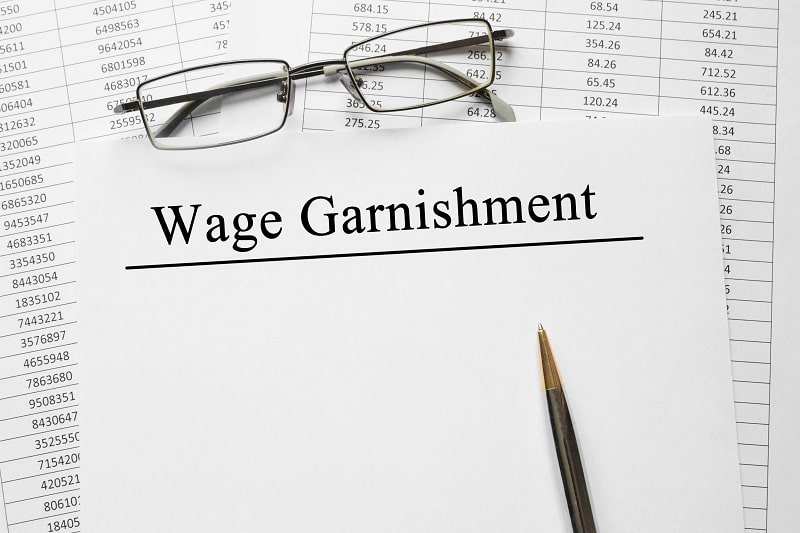If you are in debt, you’ve likely considered how – and if – your liabilities will impact your income. The short answer is yes, they can: but only in some situations.
Some states, like North Carolina, do not allow creditors to garnish wages. But others do, so it is important to know and understand the rules in your state.
For now, let’s review the basics of wage garnishment: what it means, how it impacts you, and how you can protect your financial interests.
When can a Creditor Garnish My Wages?
Fortunately, your creditors cannot arbitrarily claim a portion of your income. In short, they may only do so once they have:
- Sued you,
- Won a money judgment against you, and
- Obtained a court order directing your employer to deduct funds from your paycheck.
Credit Card Companies
A common wage garnishment scenario involves credit card companies – entities with which most, if not all, consumers are familiar. If you fail to make your credit card payments, you have breached (violated) your agreement with the credit company. The company has several ways to collect from you, and wage garnishment is a common one.
Here is How it works:
- The company sues you.
- The law gives you a set amount of time to respond to – and defend – the lawsuit.
- You exchange evidence about the existence and amount of the debt.
- In court at trial, the company must prove that you owe the debt.
- If the creditor wins, the judge will award an official judgment.
- The creditor can use the judgment to obtain an order from the court officially entitling it to garnish your wages.
- Your creditor will send the order to your employer, who will then deduct a certain amount from your paycheck to disburse to the creditor.
How much can My Creditor Garnish?
Federal law sets and caps garnishment amounts. Here are the current federal guidelines:
- Credit cards, medical bills, personal loans, and other consumer debt: Either 25% of the amount by which your weekly income exceeds 30 times the federal minimum wage – whichever is less
- Child support and alimony: 50% if you’re supporting another child or spouse, otherwise, up to 60%
- Federal student loans: 15%
However, keep in mind that state laws vary. Your state may impose other protections that shield more or less of your income. It’s important to know about the exemptions in your state, so be sure to engage an attorney if you’re having trouble navigating a wage garnishment situation.
How Else can I Protect Myself?
If you’re in danger of losing a portion of your wages to a creditor, there are a few steps you can take to protect yourself.
- Settle your debt. Your creditor might be willing to accept a debt settlement in lieu of going through the court system, but you will need to have this conversation before the legal process commences. You will also need to furnish information about your financial situation, from your assets and liabilities to proof of financial hardship, in order to convince a creditor that settling with you would be in its best interest.
- Review your state’s exemption laws. As discussed, states allow you to protect your wages through exemptions. When you receive the wage garnishment notice, check out your state’s laws to see if you can protect a portion of your earnings. If so, you may file a document in court claiming the exemption. If you fail to actively claim your exemption, you will lose the opportunity to do so. Be sure to consult an attorney about the logistics involved in taking this step.
- File for bankruptcy. Once you file for bankruptcy, the “automatic stay” – a mechanism that protects debtors – will halt any and all collection action and will stop the garnishment. Bankruptcy may also wipe out your other debt, but keep in mind that a bankruptcy filing can remain on your credit report for up to ten years. This will impact other aspects of your financial life, like obtaining another loan in the future.
Protecting Your Rights
Although facing a wage garnishment is stressful and potentially even frightening from a financial perspective, the key is to remain calm. While it may pose a temporary financial challenge, it is possible to rebuild your credit and to return to firm financial footing sooner than you may think. Additionally, keep in mind that all creditors are bound by the Fair Debt Collections Practices Act, a federal law that limits their abilities to freely communicate with you. Even if a creditor tries to take more from you than it is owed, or if it uses unethical means to contact you, the law is a stronghold that will protect your rights as a consumer.
Engaging a lawyer experienced in debt collection and post-judgment collections cases will take a load of stress off of your shoulders, as he or she will be able to communicate with your creditors on your behalf and to ensure that you’re not losing more than you should through the wage garnishment process. If you find yourself in a challenging situation, ask for help sooner than later.


